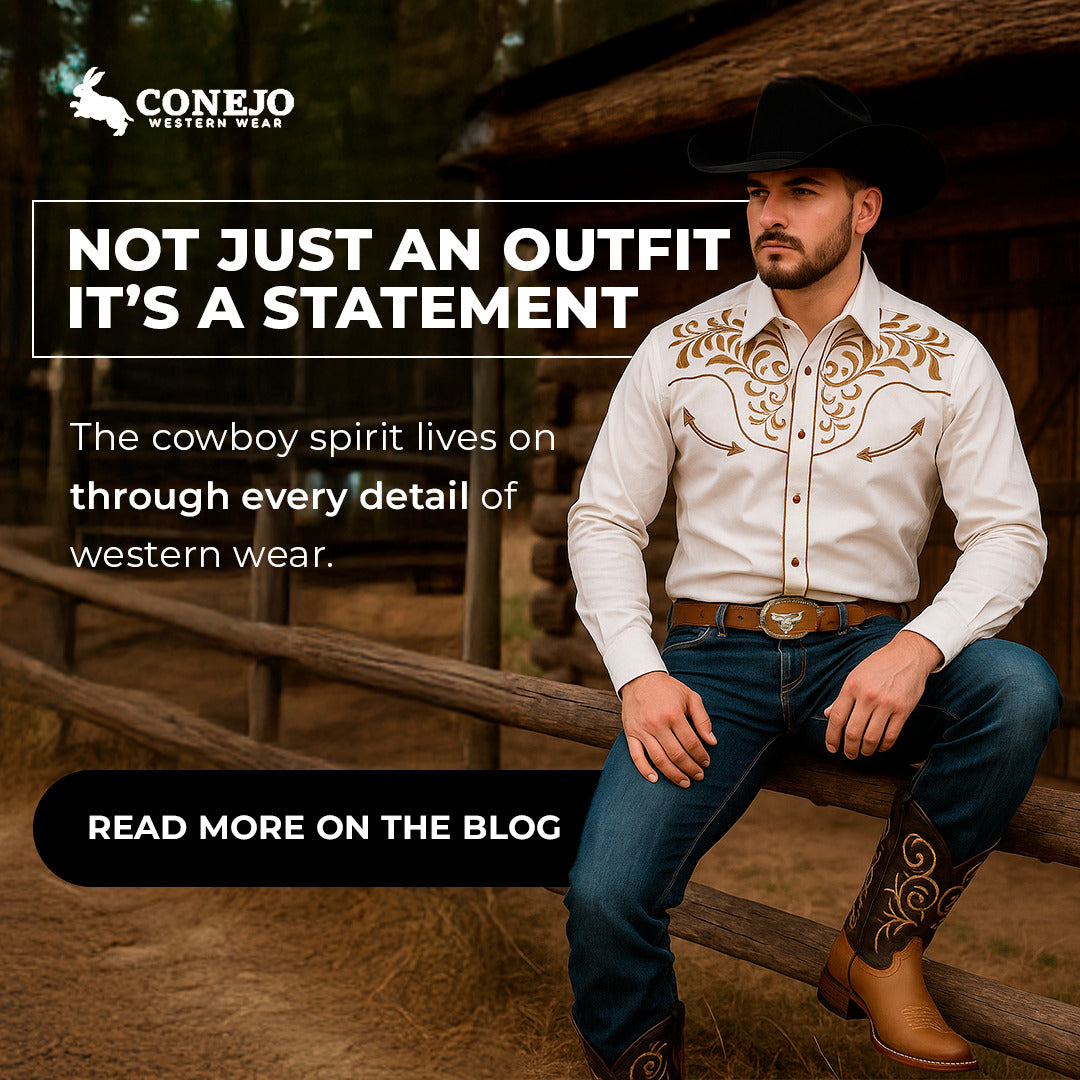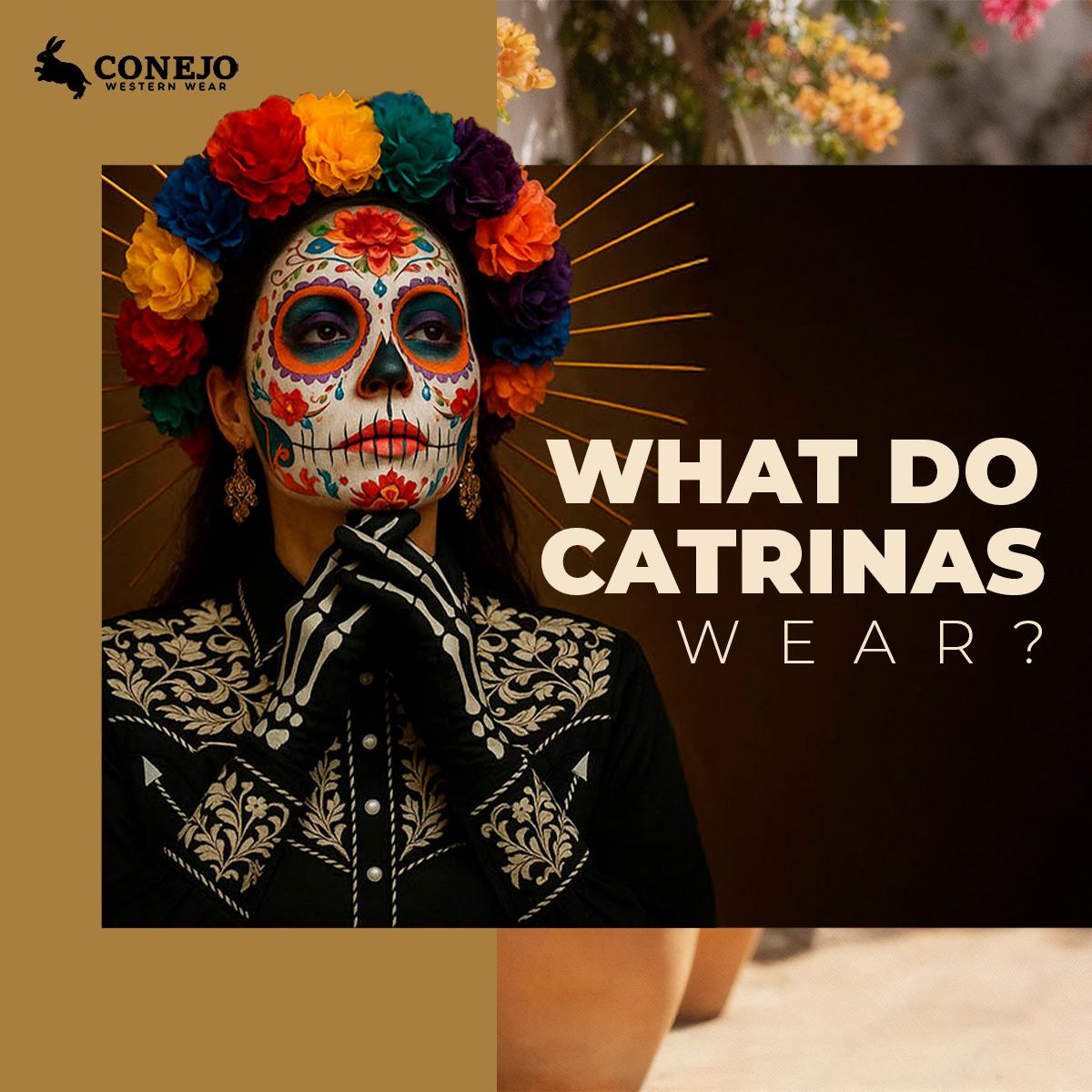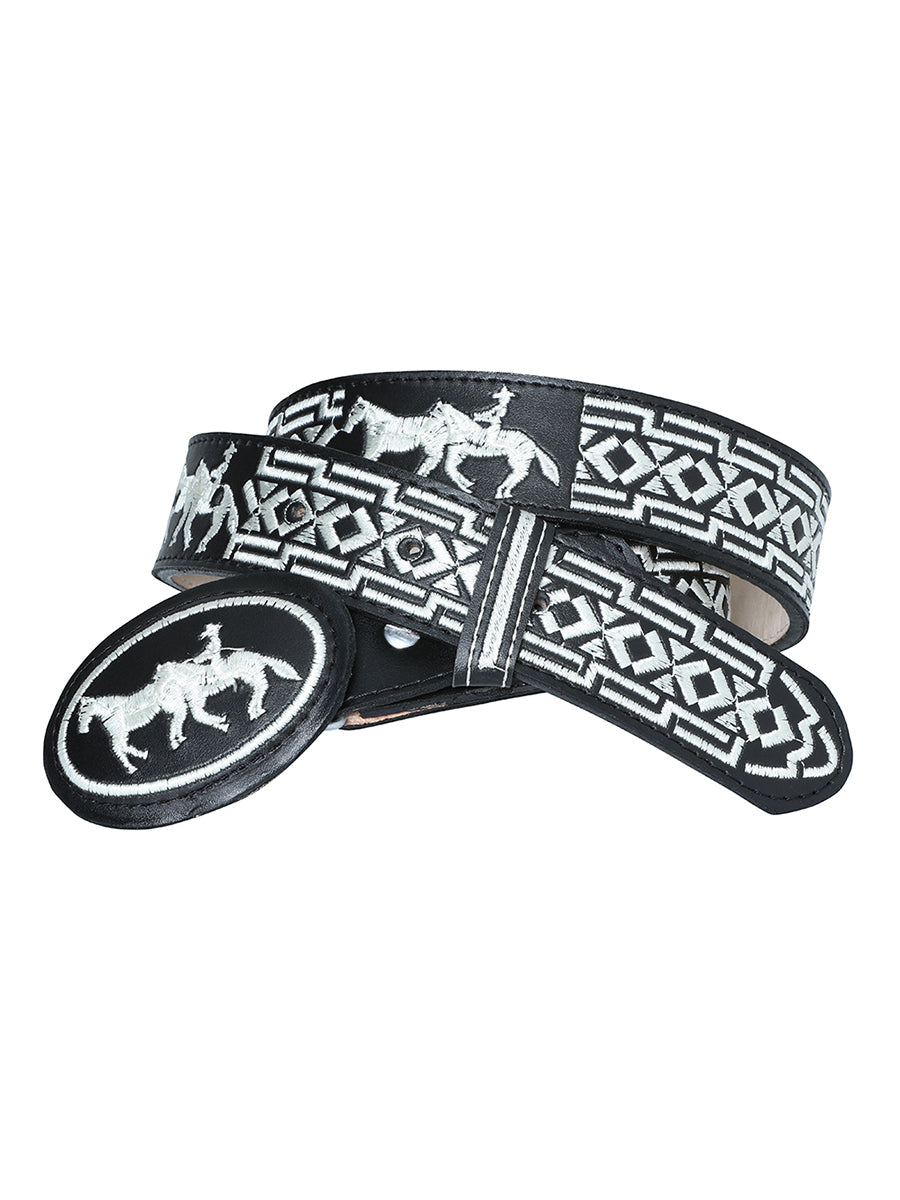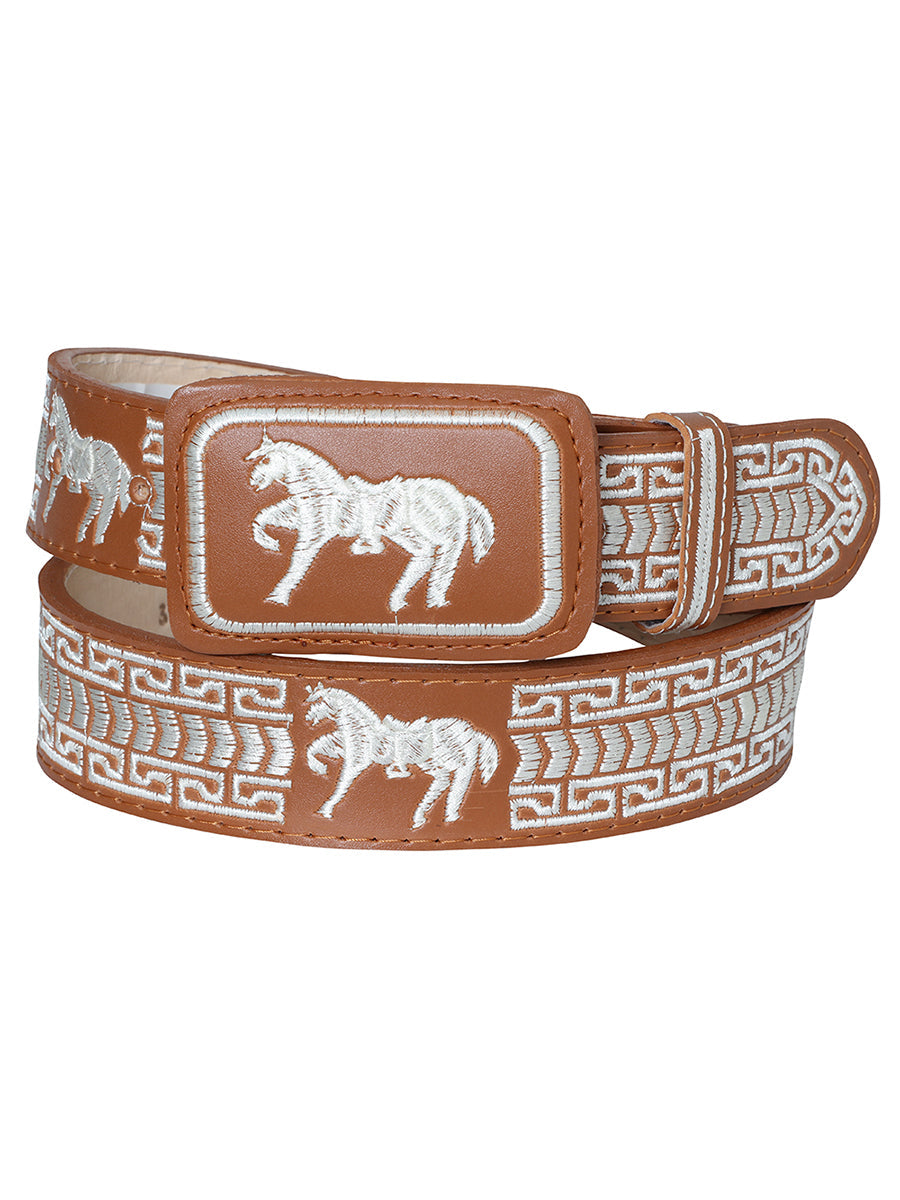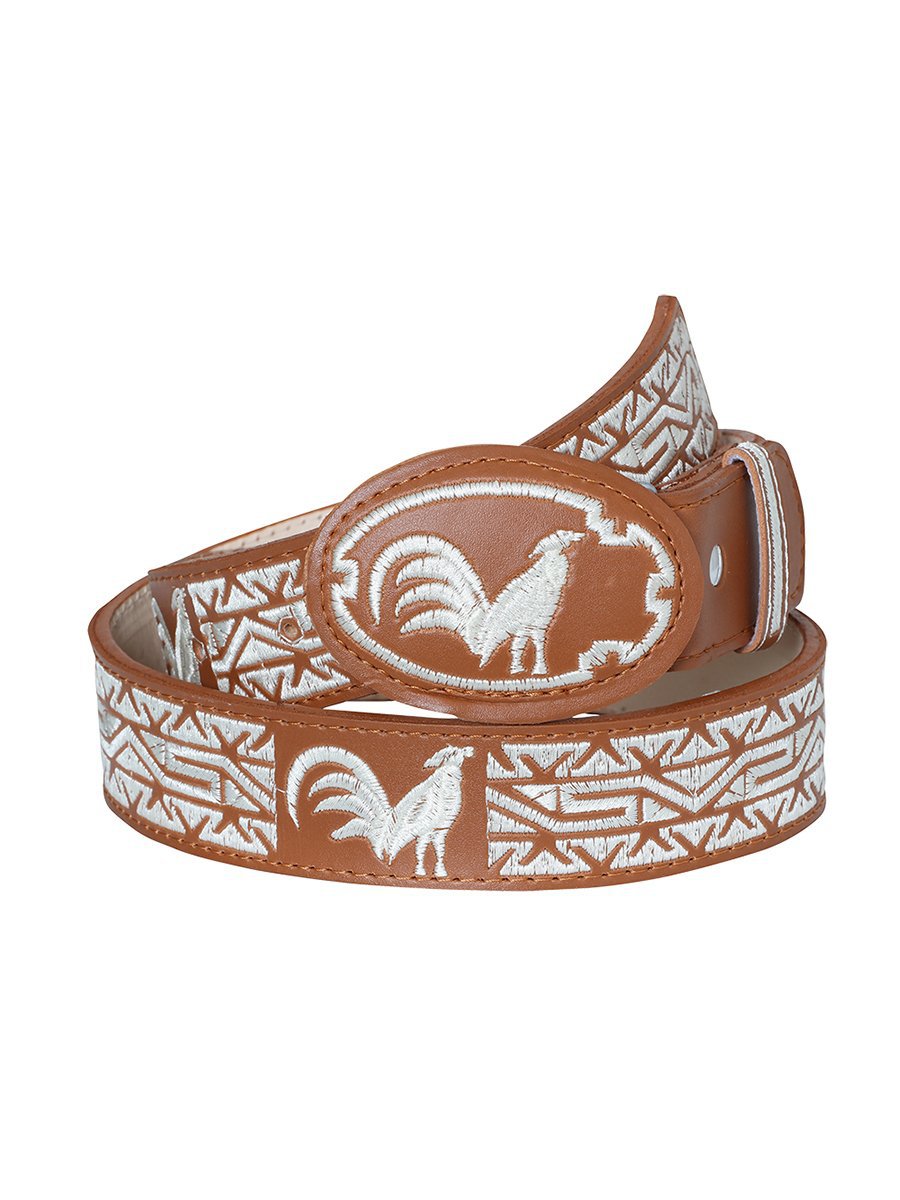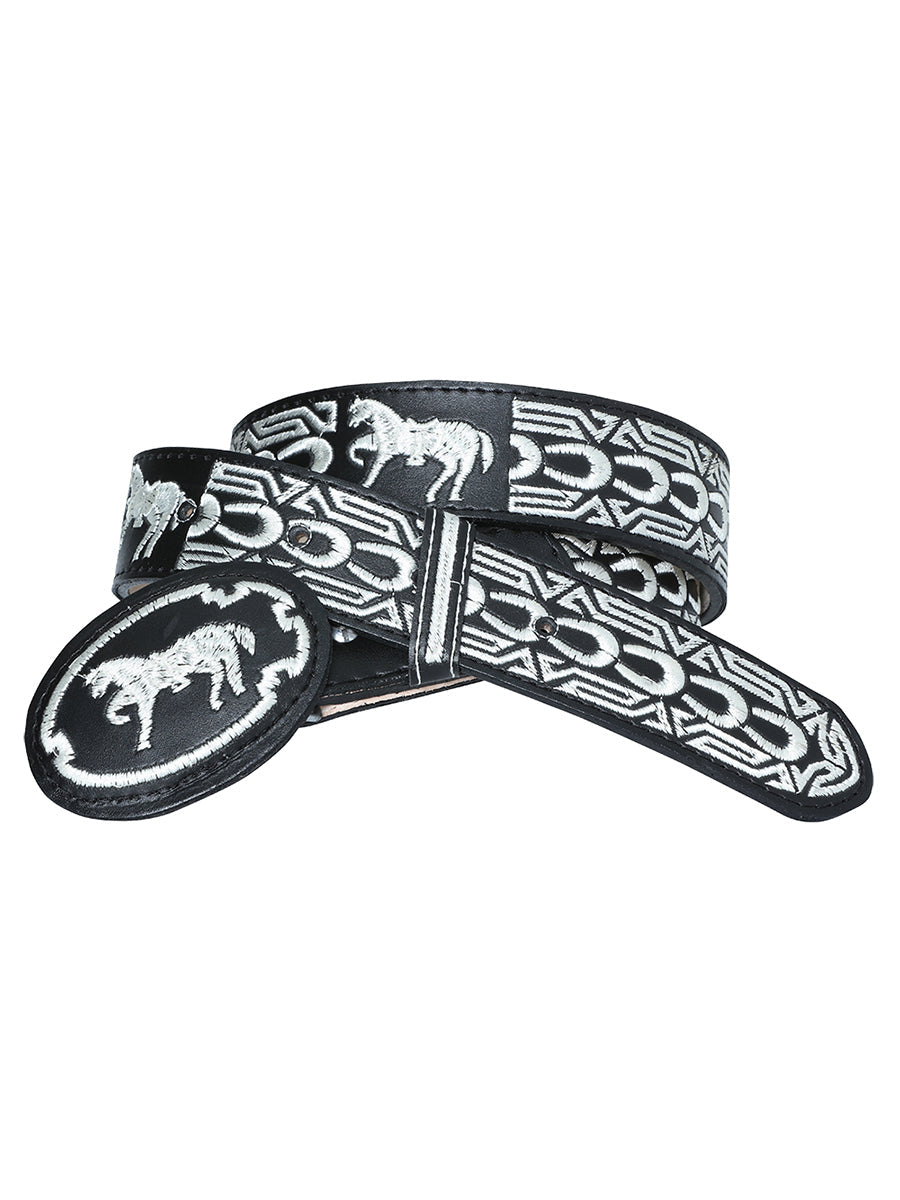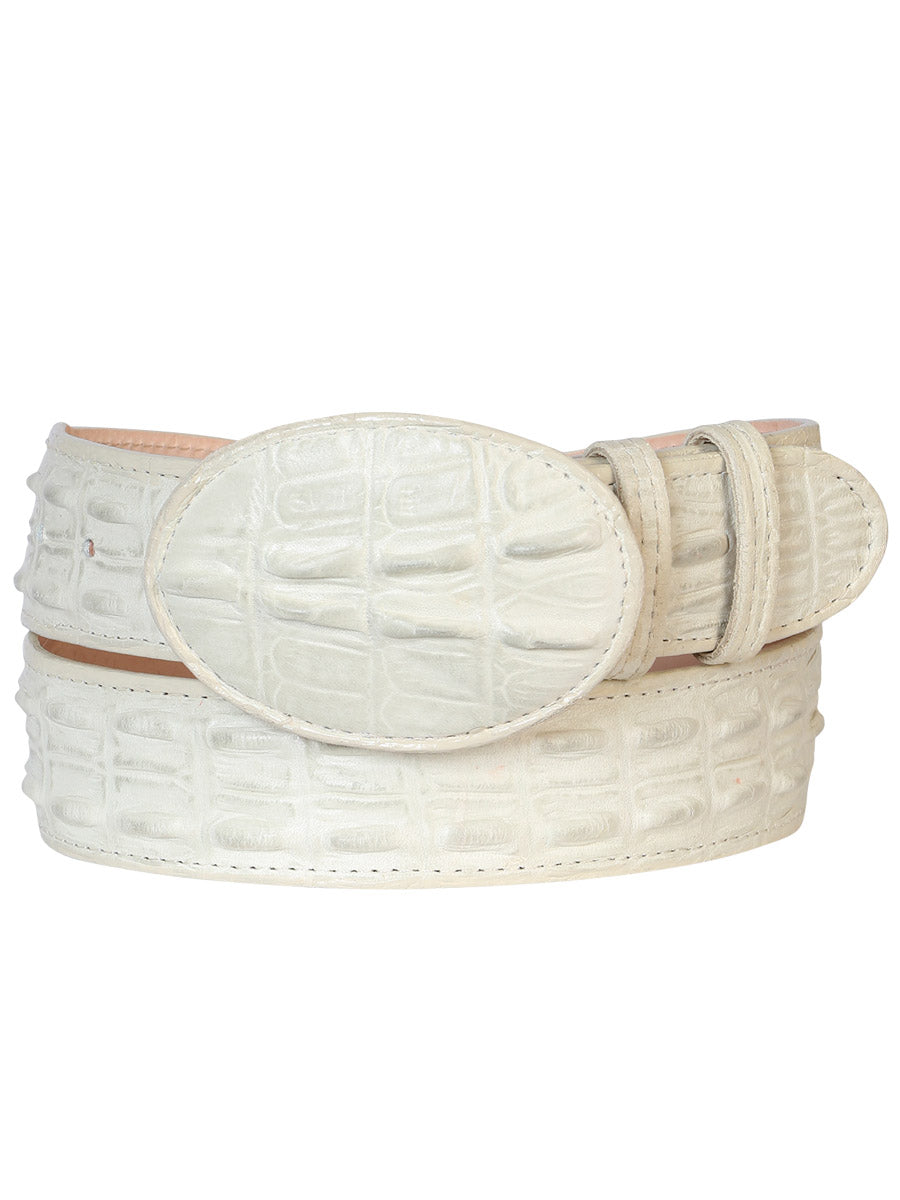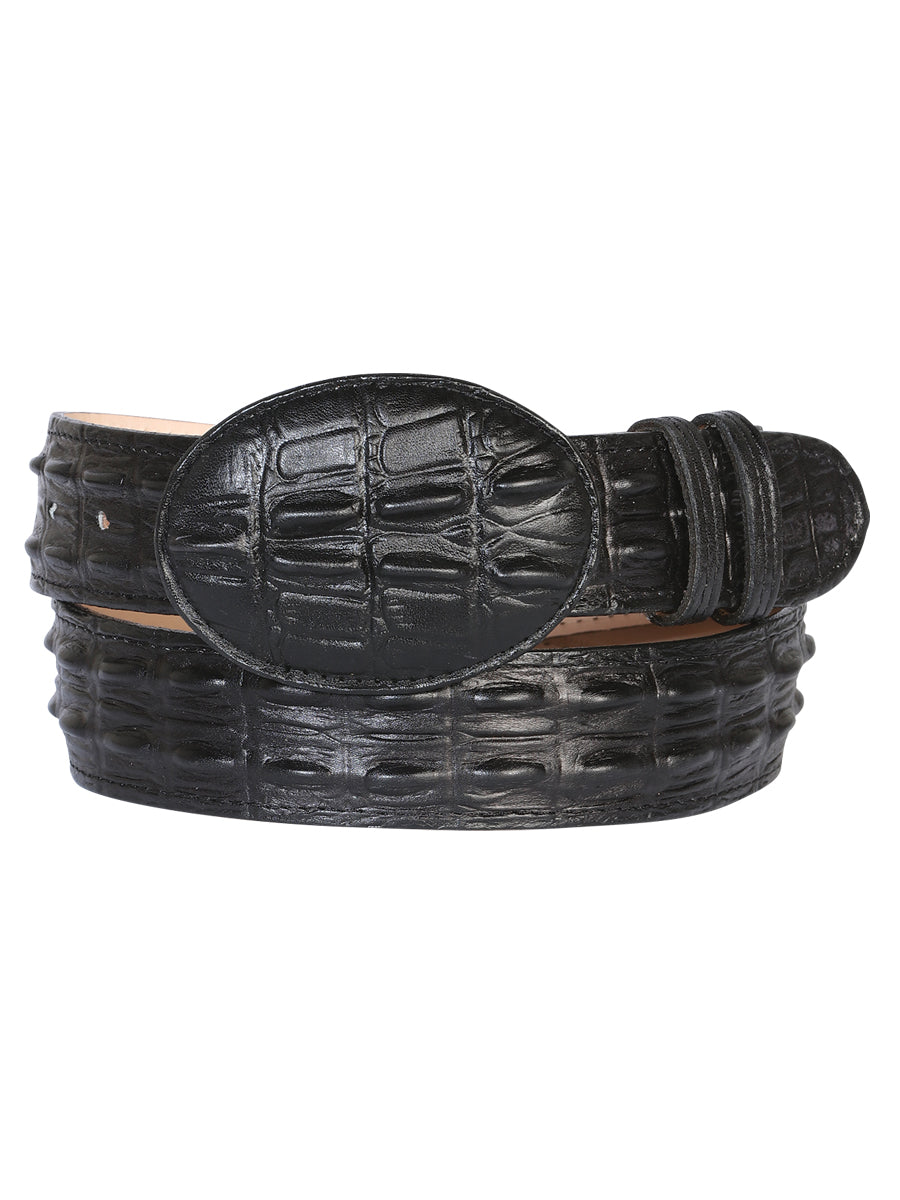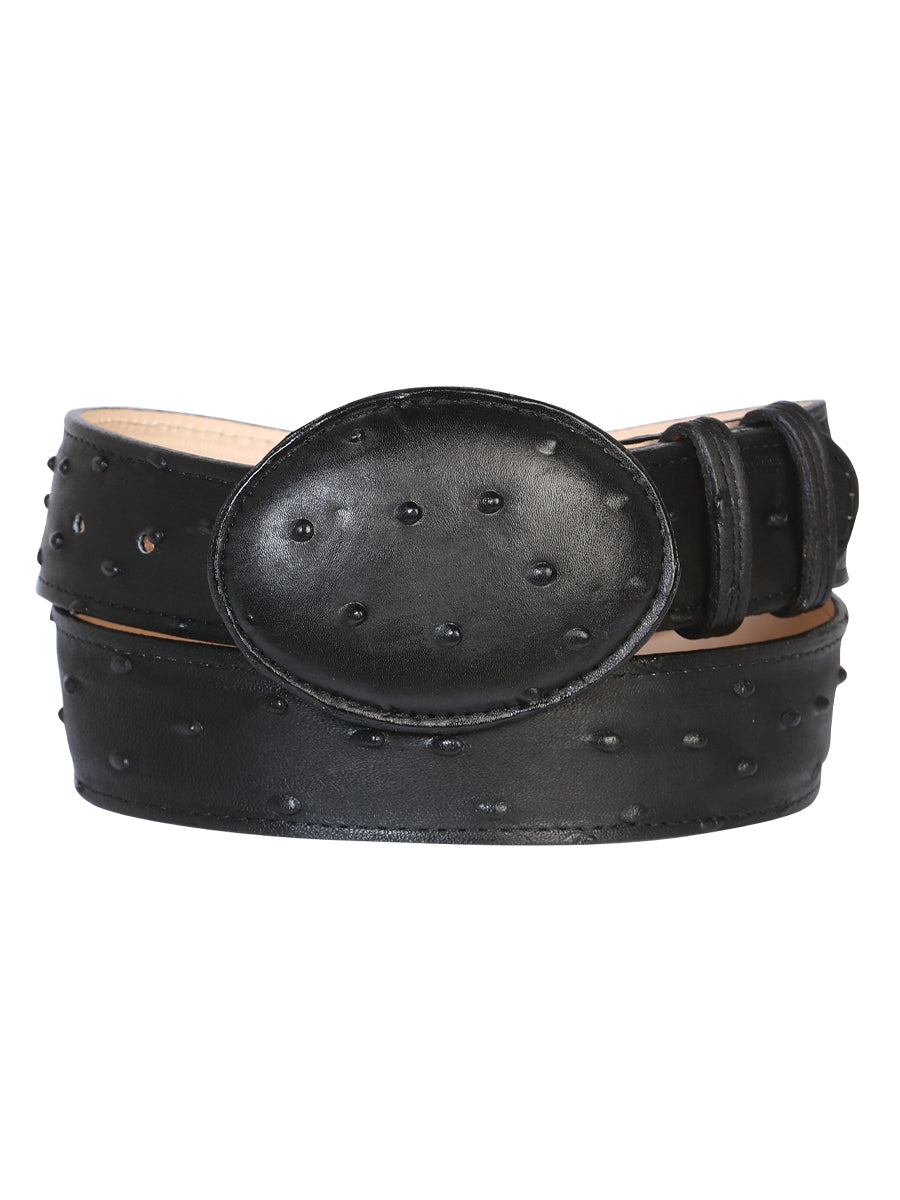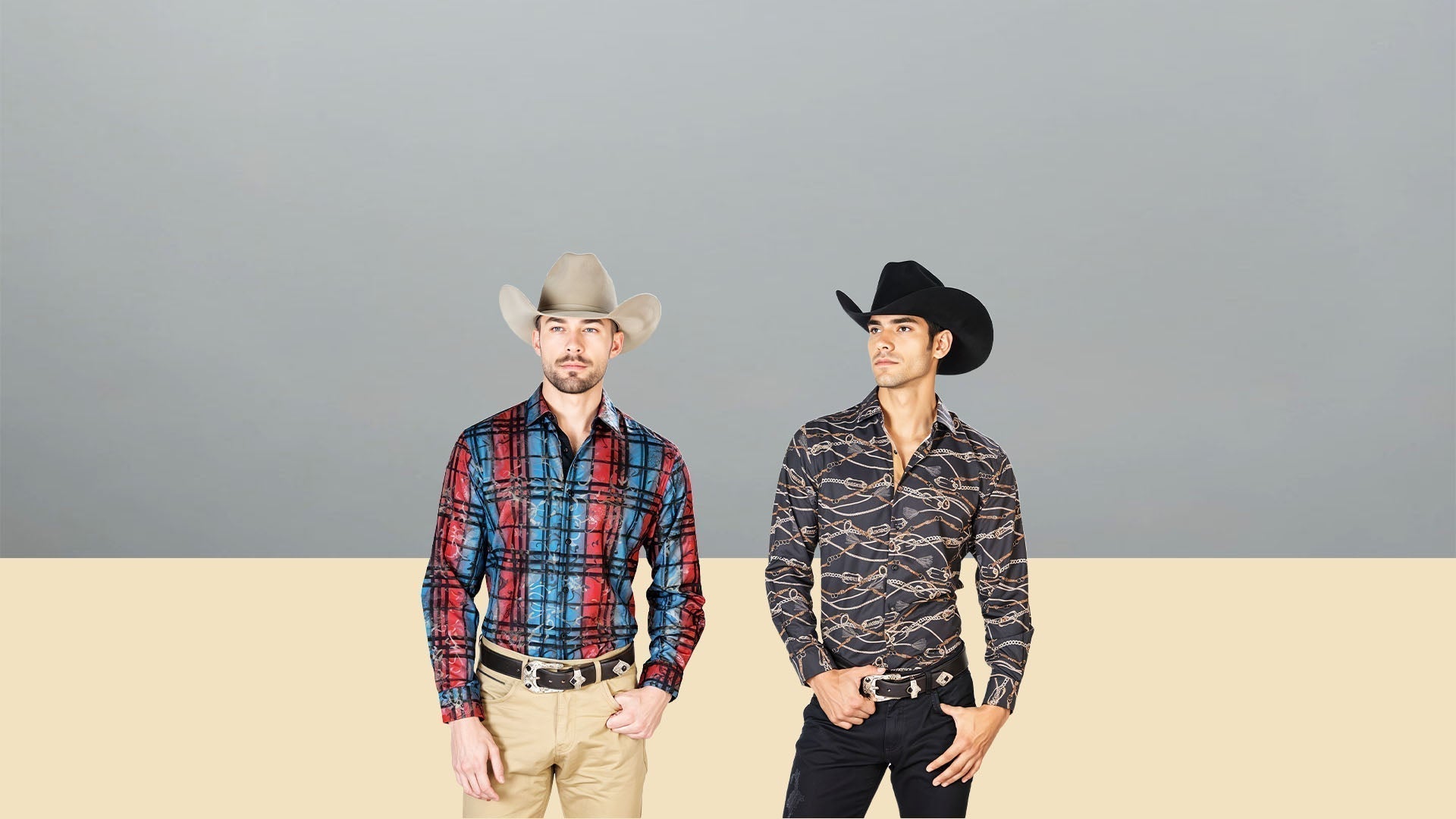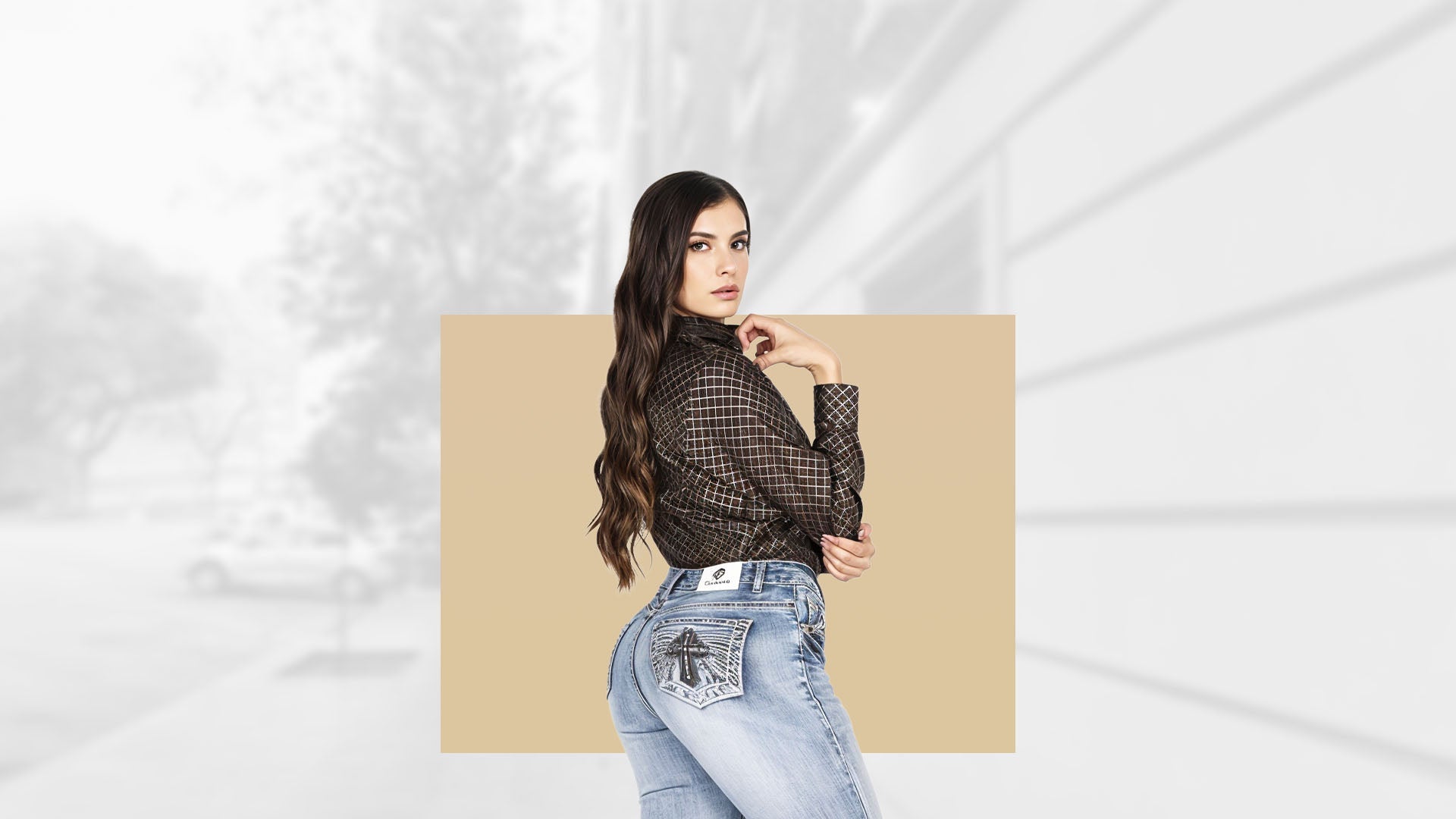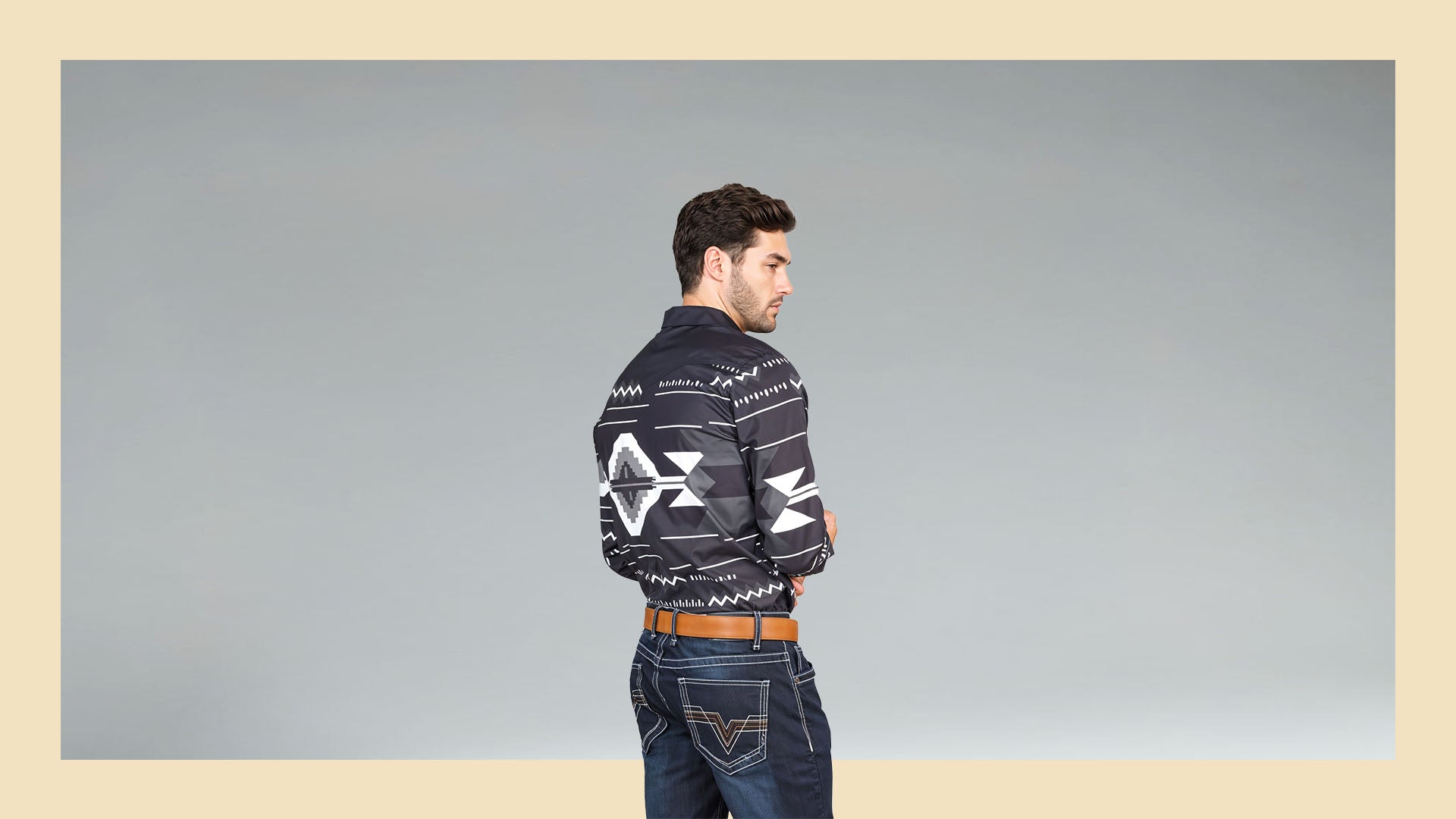
Cinturones occidentales: historia, significado y cómo usarlos
Pocos accesorios de la moda vaquera tienen tanto simbolismo y versatilidad como el cinturón vaquero . Antiguamente diseñado con un propósito puramente práctico, el cinturón se ha convertido en un elemento distintivo del estilo vaquero, combinando durabilidad, maestría e identidad personal. Desde la vida en el rancho hasta las arenas de rodeo, y ahora hasta la moda urbana moderna, el cinturón vaquero se ha transformado tanto en una herramienta funcional como en una pieza destacada.
Orígenes: Los cinturones como herramientas del vaquero
Los cinturones vaqueros se remontan a principios del siglo XIX. Los vaqueros usaban cinturones de cuero resistente y labrado para guardar su equipo, fundas y artículos esenciales para la ganadería. Estos cinturones no eran ostentosos: eran robustos, duraderos y estaban hechos para soportar largas jornadas sobre la silla de montar.
Los historiadores señalan que la popularidad de la marroquinería decorativa entre los vaqueros pudo haber estado influenciada por las tradiciones vaqueras mexicanas , que enfatizaban la artesanía y los adornos (Smithsonian). Con el tiempo, estos detalles se convirtieron en parte de la identidad vaquera, convirtiendo los cinturones en algo más que un simple accesorio funcional.
El auge de la hebilla del cinturón occidental
A finales del siglo XIX y principios del XX, la hebilla de cinturón vaquera comenzó a consolidarse como símbolo de logro. La cultura del rodeo fue fundamental en esta transformación: en lugar de trofeos, los ganadores solían recibir hebillas de plata grabadas. Pronto, las hebillas de gran tamaño y con diseños intrincados se convirtieron en elementos básicos del atuendo vaquero.
Incluso hoy, los campeones de rodeo exhiben con orgullo sus hebillas como insignias de honor. Más allá de la arena, la llamativa hebilla se ha mantenido como uno de los símbolos más reconocibles de la moda occidental.
-
Compra el look: Cinturones Western para mujer
Los cinturones occidentales como declaraciones de moda
A mediados del siglo XX , a medida que la ropa vaquera se popularizó, los cinturones evolucionaron de ser prendas de rancho a ser un elemento esencial de la moda. El cuero repujado, los patrones grabados, las incrustaciones de turquesa y los detalles plateados les otorgaron un toque distintivo.
Publicaciones de moda como Vogue han destacado cómo los accesorios occidentales , incluidos los cinturones, han resurgido en las pasarelas, demostrando que el estilo inspirado en los vaqueros no se limita a los rodeos: ahora es parte de la moda global (Vogue).
Hoy en día, los cinturones occidentales se combinan sin esfuerzo con jeans, vestidos y faldas, ofreciendo una forma versátil de darle un toque vaquero a los atuendos cotidianos.
-
Compra el look: Accesorios Western
El estilo del cinturón occidental en la actualidad
La belleza del cinturón occidental moderno reside en su adaptabilidad. Estas son algunas de las formas más populares de combinarlo:
-
Con jeans de mezclilla
No hay nada más chic-vaquero que combinar un cinturón de cuero repujado con unos vaqueros clásicos de corte bota. -
Prueba: Vaqueros occidentales para mujer
-
Sobre vestidos
Un cinturón occidental atrevido ciñe la cintura y añade estructura a las siluetas femeninas, perfecto para festivales de verano o salidas nocturnas. -
Prueba: Vestidos occidentales
-
En el rodeo o en los festivales
Las hebillas de gran tamaño y los cinturones llamativos son imprescindibles para eventos como el Rodeo de Houston o el Festival de Música de Tortuga. -
Influencia de la ropa de calle
El creciente movimiento vaquero ha visto cómo los cinturones se combinan con chaquetas de gran tamaño, faldas e incluso moda de lujo, lo que demuestra su atractivo atemporal.
¿Por qué perdura el Cinturón Occidental?
Lo que hace que el cinturón vaquero sea atemporal es su equilibrio entre funcionalidad e identidad. Es una pieza que evoca trabajo duro, resiliencia y orgullo por la herencia. Para algunos, es un recuerdo de las tradiciones ganaderas familiares. Para otros, es un accesorio vanguardista que incorpora el estilo vaquero al mundo moderno.
En Conejo Western Wear , continuamos este legado con cinturones artesanales que fusionan la tradición con el diseño contemporáneo. Desde cueros labrados sencillos hasta hebillas llamativas, cada cinturón cuenta una historia.
La historia del cinturón vaquero es la historia de la cultura occidental en sí: práctico, elegante y profundamente vinculado a la identidad. Desde los primeros vaqueros hasta las pasarelas y los festivales de música actuales, los cinturones siguen siendo uno de los iconos más perdurables de la indumentaria vaquera.
Ya sea que esté buscando un cinturón de cuero repujado , una hebilla llamativa o un accesorio versátil para realzar su guardarropa, el cinturón occidental es una prueba de que el verdadero estilo nunca se desvanece.
Compre nuestra colección completa de cinturones occidentales →

